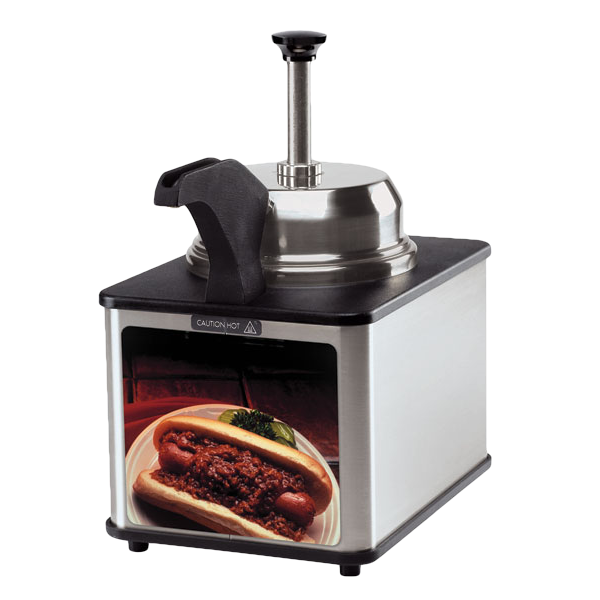The US didn't win the space race btw.
I've been on a kick reading about old school space exploration and was surprised to find this out. The picture looks comparable to the Mars rover, and had to travel over double the distance to get there.
Knowing what we know now, there could absolutely be new life on places like this, but we'll never know because where's the capital
source!?: https://en.wikipedia.org/wiki/List_of_missions_to_Venus
History of the Venus Landers: https://en.wikipedia.org/wiki/Venera
The Soviets (correctly) considered Venus the best candidate for a first extraterrestrial colony: the surface is very hot but at an altitude of 53 km the temperature is 20°C and the pressure is the same as in high cities of Earth like La Paz and Lhasa. The atmosphere up there is 99% carbon dioxide, which can be used to grow plants to produce food and oxygen and is clear to sunlight, and is denser than breathable air. There are also very fast winds at that altitude that circle the planet every 100 hours.
So you can imagine a floating habitat suspended by its own atmosphere, with a teflon greenhouse for food, solar and nuclear power for electricity, pushed by the wind into a 100-hour day/night cycle. Unlike in Mars, a leak in the habitat would not result in explosive decompression but a slow diffusion of carbon dioxide. Eventually a way to mine the surface for minerals could be developed.
Edit: Like @spectre said, I forgot about the gravity! Another huge problem for space colonies (like temperature, pressure and cosmic ray protection) already solved for us.
90% of earth gravity too! Everything is a bit lighter which makes the engineering a bit easier, but it's not too much lighter where it gets in the way
Well, you start at an altitude of 66 million km, The trick is how to never go below 53. :P
Since the atmosphere there is almost entirely carbon dioxide, and CO₂ is heavier than nitrogen and oxygen, you just need to carry enough nitrogen and oxygen that you'd float like a zeppelin floats on Earth.
Balloons I would guess.
If the atmosphere is more dense then balloons would be even more buoyant.
Sure, the Soviets went from Earth to Venus. But we Americans are bringing Venus to Earth!
The Venera project is pretty funny because the lens caps on the cameras kept fucking things up. On a few missions the lens cap didn't pop off and they didn't get any pictures, and on another mission they got really weird data from the surface composition scanner until they realized the probe was scanning the lens cap, which had fallen right underneath the surface scanning instrument.
Also it is just WILD if you think about it that we have pictures from the surface of mars and venus.
According to our data the surface of Venus is actually made of aerospace grade Titanium alloy. Coincidentally this is the same material our lander is made from! This development will allow for future space colonization efforts to use the Venusian surface as a source of raw materials to build new space probes and launch vehicles.
In a pinch, we can also use Venusian soil as a cap for our camera lenses!
I mean, getting anything to send Telemetry from Venus is fucking impressive. It's about the most hostile environment known to man, and it had to survive the only slightly less hostile environments of launch, deep space, and re-entry, which have entirely different requirements.
Joe Biden nervously puts gun to head
...but I was gonna be the first to make all the IDPOL firsts...
Click
I absolutely love this picture btw (the one on the left). It really sells Venus as an alien hellscape. The sky is the color of piss, because it's made of acid. The ground is an endless plane made of hideous cracked black volcanic dirt. When I look at this picture, I see an environment which is completely hostile to me. I already know how hostile Venus is, so hostile that I could not even set foot on the planet because the atmosphere would crush me. But this picture really makes me feel it.
I know what you mean but I almost find the familiarity weird... it's like what you said but in combination with the fact that I can still recognize rocks, dirt, little hills, and a sky. It's so alien but it's still a place in a way that the middle of space or inside the sun isn't.
The discovery of chemicals in Venus' atmosphere that we're about 80% certain can only be made by microbial life is the coolest fucking thing ever. We need a new Venera project to get more specific information.
:geordi-no: venereal disease
:geordi-yes: space venereal disease
kirk was a prophet, he knew, he knew
Meanwhile, we're wasting precious finite rocket fuel on sending burgers to space or whatever stupid shit Space X is doing.
I didn’t even know there were landers on Venus.
Hopefully we get a good space race from the PRC.
China's getting a Space Station soon. Hopefully they'll get to Mars before America, then really make sure it become the 'Red' planet.
It's fun to see stuff you made turn up organically. :heart-sickle: Here is a version without jpeg artifacts. :valentina:
So the US did also land probes on the surface during the Pioneer mission and one of the probes continued returning data from the surface for ~1hr which is pretty good for a venus lander, but it didn't have any instruments to return photographic data, only some atmospheric data. They weren't really even supposed to survive landing and didn't have a parachute or anything. https://en.wikipedia.org/wiki/Pioneer_Venus_Multiprobe
but yeah the venera missions are some of the most interesting missions on any planet just because of how incredibly hostile the environment is. The new stuff about the "either life or unknown complex chemistry" findings is really interesting and shows just how much we still have to learn about venus. Hopefully these results will get new venus missions into planning stages and it'd be really interesting to see what modern engineering would be able to build to stand up to the surface/atmospheric conditions. Some folks are talking about crazy cloud city type shit because the density of the atmosphere means some pretty wild stuff will float.
Here are some more raw and processed images from the Venera probes:
http://mentallandscape.com/C_CatalogVenus.htm
That link includes information about the picture shown by OP, it is the most common one but it's also heavily edited. Venera 13 was supposed to last for about 30ish minutes before Venus insane pressure would simply crush and destroy any components, at the end, it lasted for 127 minutes. It kinda reminds me of "Opportunity", which was designed to last mere 90 days and it ended up working for 14 years.
What I find cool about the later Venera landers is they ditched the parachute at 50km and descended slowly simply by virtue of a donut shaped airbrake - Venus' atmosphere being so thick that you can adequately slow down with the equivalent of spreading your arms out in freefall
Its kinda funny how the surface of Venus looks like the US during the fires this summer













